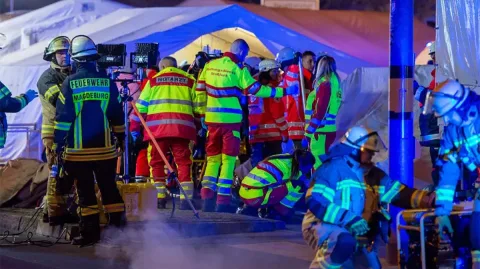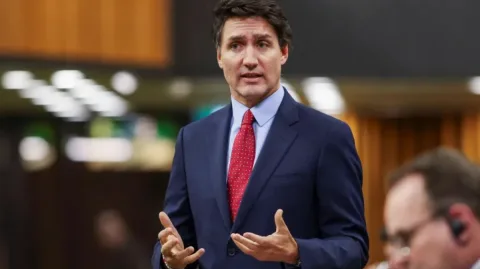Abdiweli M. Ali’s to-do list looks nothing like yours. Rid a country of a fearsome militant…

Abdiweli M. Ali’s to-do list looks nothing like yours.
Rid a country of a fearsome militant Islamist group. Deliver humanitarian aid to millions of people suffering from drought and famine. Make the streets safe after decades of civil war.
And, while you’re at it, draft a new constitution, make a dent in corruption and conduct democratic elections in less than a year.
Ali is the Niagara University economics professor from Amherst who in June became Somalia’s prime minister, and the challenges confronting his transitional government appear monumental.
In a strange turn of events, he replaced Mohamed A. Mohamed, a state Department of Transportation employee from Grand Island who served as prime minister for the previous nine months.
They were together Sunday when Ali, during a visit back to the United States, spoke before an audience of several hundred at a University at Buffalo forum. Calmly and succinctly, as if talking to a class of students, he described Somalia as at a crossroads in its attempt to create a stable society.
“The biggest problem is that all the basic institutions have collapsed. Years of civil wars have led to chaos and lawlessness,” he said. “But there has been some progress.”
For example, he said, business life, particularly in the capital city of Mogadishu, isn’t as bad as one might expect.
“We have an economy without a state,” Ali said.
The opportunity for Somalia, a country of about 10 million on the Horn of Africa, has come with the retreat in several areas of the al-Shabab Islamist group. However, the group still controls parts of the country, blocking aid from reaching many residents, and violent clans have begun fighting to take over areas once held by the insurgents.
“We need to secure food aid to people and be able to uphold basic laws. We have to prevent the warlords from coming back,” Ali said.
He estimated that half the population faces starvation because of more frequent and severe drought cycles exacerbated by years of environmental degradation, including illegal deforestation to produce charcoal for sale to other countries, mainly Persian Gulf states.
“This is market-driven and constitutes the livelihood for many people, but it has had consequences for the whole country,” Ali said.
Earlier this month, he asked the United Nations Security Council to increase the number of peacekeeping forces in Somalia to provide security, and he has been appealing to countries, organizations and individuals worldwide for humanitarian support.
The United States has pledged more than $100 million, and Western New Yorkers have stepped up, as well.
Dr. Khalid J. Qazi, president of the local chapter of the Muslim Public Affairs Council, a key sponsor of the forum, said $75,000 in donations from the Buffalo area have been sent to Somalia in the last two months alone.
The plight of Somalis is heart-wrenching.
Dr. Fuad Sheriff, an Amherst physician, recently returned from the country as part of International Medical Relief of Western New York in a trip he described as one of the most difficult missions he has ever undertaken.
“You cannot imagine the extent of the human tragedy,” he told the forum. “Mothers begging for food for their kids. Children dying from a lack of water. The stench of death in the air at refugee camps from the decomposing bodies of animals. People pleading for help.”
In one photo he displayed, refugees fleeing conflict can be seen living in crowded, makeshift tents. In another close-up, a starving woman tugs at his sleeve, begging for just a sip of water as he gets into a car.
“We can squabble about the cause of the problem, but women and children are dying, and we need to help them,” Sheriff said.
Ali, 45, has graduate degrees in public administration from Harvard University and another in economics from Vanderbilt University. Mohamed, a friend, had named Ali to the prime minister’s 18-member Cabinet last November, and Ali has served as Somalia’s minister of planning and international cooperation, as well as deputy prime minister.
Somali President Sheikh Sharif Sheikh Ahmed appointed Ali prime minister after Mohamed resigned in June. Mohamed was considered popular but agreed to step down in a deal to settle a dispute among bickering executive and legislative officials over terms in office and the date for new elections, which are now scheduled for June 2012.
Ali said the adjustment from academics along the Niagara River to government along the Indian Ocean has been tough, but he isn’t questioning the decision.
“I’ve been involved in Somalia politics for many years,” he said. “Mine is a generational response. We have to do it.”
Ali was greeted Sunday by a supportive audience that included local Somalis.
More than 1,000 refugees from the beleaguered country have resettled here over the last 15 years, including Mohamed Suleyman, leader of the Somali community of Buffalo. He made a plea for assistance to his native land, especially medications from pharmaceutical companies and other medical organizations to combat outbreaks of cholera, measles and other diseases.
Suleyman also thanked Ali, a gesture that elicited applause.
“The people are proud,” he said.
Source: buffalonews.com





